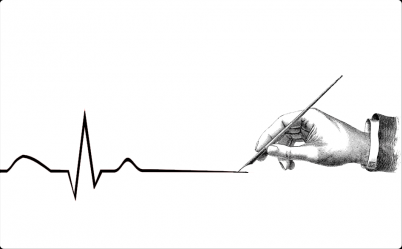Interview with a Zombie Scientist
In Celebration of Doctor-Zombie Awareness Month I had the pleasure of an interview with Horsch Tuzack, director of clinical research at the famed Wurzola Institute. We discussed Zombies and the science behind their disorders.
RS: When did you first become interested in treating Zombies?
HT: Shortly after my training, I met one at a conference and was intrigued.
RS: I understand Zombies are difficult to treat.
HT: Very.
RS: Can you give me an example?
HT: What do you think is the normal blood pressure in a zombie?
RS: Are we talking about the undead, or co-workers who show up in the morning before their second cup of coffee?
HT: I’m strictly dealing with the zombotic population.
RS: Well, what then is the normal blood pressure in a zombie?
HT: This is a difficult question to answer as they are very uncooperative patients, but from our limited clinical experience, it appears they have huge swings in blood pressure as low as 15/10 to as high as 300/120.
RS: Why such a huge range?
HT: The low blood pressure is easy to understand—they are clinically dead. The problem is they have such sluggish circulation that they are prone to thrombosis—severe blood clots. For some reasons, they also have huge surges in adrenaline.
RS: Is that responsive to treatment?
HT: We don’t really know. What we do know is that they have severe alterations in their autonomic nervous systems. They don’t feel pain and they keep coming at you. Imagine Frankenstein as a really bad diabetic.
RS: Tell us about your research.
HT: We’ve taken an interest in these zombotic clotting disorders. It comes down to an ethical question. Do we want to help them or hurt them? For example, should be offer them clot busting medications? Some of my colleagues are involved in a new clinical trial. It’s going to be quite challenging because you can’t get informed consent from a zombie.
RS: Tell me about it.
HT: The trial will be known as ISIS-z15. By the way this study group is not the same as the original ISIS collaborative group from Oxford. They did the original trials such as ISIS-2, though much of the new trial is based on their original work in humans. The zombies are randomized to either of two arms: tPA (a clot busting medication) plus aspirin versus decapitation.
RS: Will it be ethical?
HT: I think so.
RS: Good luck with the trial.
HT: Thank you.
References:
1. Isis-2 Collaborative Study Group. Randomised trial of intravenous streptokinase, oral aspirin, both, or neither among 17,187 cases of suspected acute myocardial infarction: ISIS-2. Lancet 1988;332:349-360.
2. Tuzack, Connor, Gorenson, et al. Feasibility of thrombolysis in the undead: Journal of Pseudo-Clinical Experimentology 2013:64:112-114.
3. ISIS-z15 Collaborative Group. Randomized clinical trial of thrombolytic strategies versus violent alternative in the zombotic state. Proceedings of The Wurzola Institute 2015:79:12-16.
© Richie Smith
© Richie Smith

0 Comments